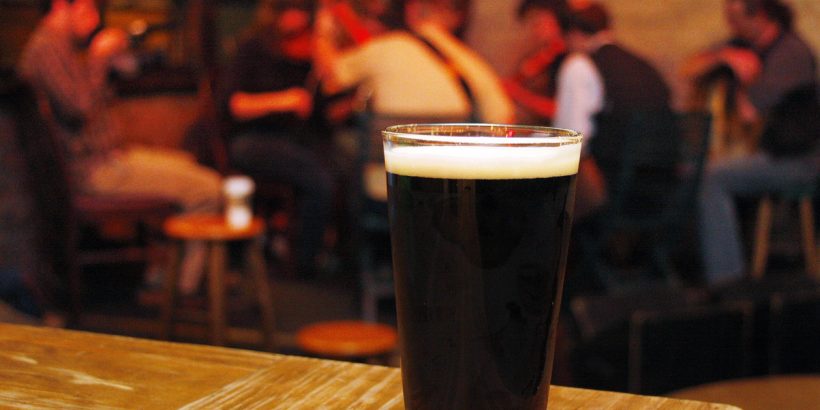RMA Study Day – Call for Papers: Everyday Music Scenes: Pubs, Clubs and ‘Stutes
International Centre for Music Studies, Newcastle University, 14th-15th April 2025
Back in 1957, Richard Hoggart highlighted ‘sing-songs and concerts in the pubs and clubs’ as the most indicative of working-class music tastes. Yet the everyday music scenes of familiar songs and/or communal singalongs, particularly around working men’s clubs, have been conspicuously absent from the worlds of musicology, ethnomusicology and popular music studies. This study day, supported by the RMA (Royal Musical Association), intends to stimulate challenging conversations about this research gap and explore rich avenues for the study of music in pubs, clubs and similar spaces of everyday, communal music experiences.
Working men’s clubs and institutes were established from the mid-19th century as alcohol-free, educational alternatives to pubs, but eventually morphed into democratic centres of live entertainment. Over the following century and a half, the differences between pubs, clubs and institutes have fluctuated, including their uses of music for bringing in customers/members, stimulating drinking or creating community. They now face rising costs, competition from music-free chains, ageing membership and changes in British leisure. Do music researchers have a responsibility to contribute to knowledge of these historical and contemporary spaces of commonplace music experience – or, even, to advocate for them?
‘Pubs’ may refer to pubs, ale houses, taverns, or even gin palaces. We use ‘clubs’ and ‘’stutes’ (a colloquial term) in this study day to refer to working men’s clubs and institutes, social clubs, labour or other political clubs, and ‘non-pol’ clubs, as well as miners’ institutes or welfare halls that operate in similar ways. We welcome ideas on defining terms and invite discussion on the matter during the study day. For now, we take inspiration from a section of Music Venues Trust’s definition of a Grassroots Music Venue, the elephant test; if it looks and acts like a club, and is recognised by a majority to be one, then it is one. Similar community venues in which performers, audiences and customs cross over with the above are also considered.
20-minute papers are invited on a relevant topic. Postgraduate taught students, postgraduate researchers and post-docs as well as established researchers and those working professionally in the field are invited to take part. Possible disciplinary backgrounds might include popular music studies, musicology, cultural policy, heritage, sociology, anthropology, history or cultural management. Those wishing to attend without presenting are warmly encouraged to join and contribute to discussions.
A portion of the study day will take place in a club in Newcastle which is currently reviving its music programming, with the opportunity to see the space and ask questions to management. It also includes an optional evening visit to ‘the oldest folk club in Britain running in its original venue’ at a restored Victorian pub to watch or perform, socialise with study day participants and talk with its members.
Topics may include but are not limited to (in the context of the above venues, in and beyond the UK):
- Rooms, concert halls and bar areas as rehearsal spaces
- Background music and ubiquitous listening
- Challenges of contacting and collecting research data from private clubs
- Working-class spaces for music-making
- Audience behaviour and customs
- Professionalism and amateurism in ‘artiste’ and cover band circuits
- Use of music in Clubland comedy acts
- Performances, walls and shelves as spaces for commemoration of local, regional, national and global music heritage
- Talent shows and competitions within new talent networks
- Traditional, ballroom and swing dancing in ballroom areas
- Folk sessions, jams, open mics, singalongs and the meaning of participation
- Musicians and DJs at private functions (wedding parties, birthdays etc.)
- (In)visibility of everyday music scenes in policymaking
- Support for original, subcultural, countercultural, youth or avant-garde scenes
- Cross-cultural networks in everyday music scenes
- Inclusion/exclusion based on ethnicity, gender, sexual orientation, disability or social status
- Group identity based around informal or formal membership
Roundtables and themed sessions are welcome but numbers will be limited due to time constraints. Alternative submissions such as performances and short films are invited if they shed new light on or critique an aspect of music in pubs and clubs. The primary purpose of the study day is to bring people together to meet and discuss shared research interests, both formally and informally. Consequently, it is planned to be in-person only.
Send abstract proposals or expressions of interest in attending to musicinclubs@gmail.com.
Deadline for abstracts: 30th November 2024. Proposals are welcome after this but may be less likely to be accepted, depending on space.
Registration for participants, including those wishing to attend but not present, will be available at a later date.
Participation is free. Three £50 travel bursaries are available based on need; to be considered, when submitting the abstract please submit an additional one-paragraph statement of need, travel length, and how the study day will benefit your research. Lunch on the 15th (full day) and refreshments on both days are provided.

